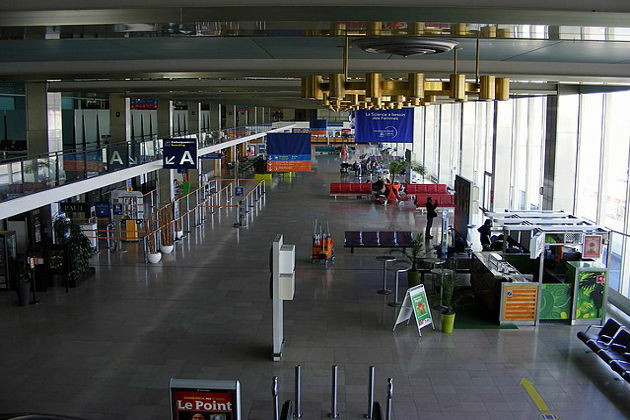Investment in child nutrition key to productivity gains
News24
22 Feb 2021, 11:40 GMT+10

It seems counter-intuitive that the richest province in South Africa, Gauteng, has the highest rate of stunting in children under five. After all, stunting (short-for-age) is a measure of chronic malnutrition, which one might expect to be more associated with the poverty of the former homelands.
No province has cause for pride. Countrywide, over a quarter of children are stunted, a proportion that has not changed for over two decades: but a full third of Gauteng's young children are chronically malnourished.
What accounts for this? Ironically, children in South Africa are stunted not because we are poor as a nation, but because we are relatively rich and deeply unequal. In search of a better life, people move to cities looking for work. They live in crowded conditions with poor amenities, especially water and sanitation. Cut off from local agriculture, they become dependent on cash, but can't afford nutritious foods because prices are set by consumer demand from the richer half of the population.
These structural dynamics drive our stunting rates as revealed in the recently published 2020 South African Child Gauge
In the context of South Africa, food and nutritional insecurity is not a temporary anomaly in a country transitioning to greater productivity and economic growth. But it is one of the main reasons why we are stuck on a low-growth trajectory with little prospect of significant gains over the medium term.
We have gone as far as we can without including the economic potential of the other half of our people. The economist Thomas Picketty argues that, wealth taxes aside, the only way to reduce income inequality is through greater productivity. Yet the only way to substantially increase productivity is to expand our skills base. This is constrained by the fact that 50% of our children do not complete Grade 12. The reason for school dropout and failure is largely that children start school without the foundations for learning - of which good nutrition is the bedrock. If we are to escape the inequality trap, we must address the root causes of low productivity.
This recognition must be made more explicit by government: good nutrition is fundamental for productivity and growth. It should reflect in our economic priorities and fiscal allocations. If government has to choose between one more rand into higher education or into nutrition support for children, it must be into nutrition. Similarly, if we must choose between new investments in a smart city or nutrition support, it must be into nutrition.
As Economics Nobel Laureate, Angus Deaton, has shown, better health outcomes are achieved primarily through greater income equality and not through greater spending on health care; and better health leads to greater productivity.
Given the constraints on the public fiscus, we cannot expect massive new funding for nutrition to the extent that Brazil, Mexico or Chile did with great success in the 1990's. Nonetheless, there are strategies that could begin to break the cycle of malnutrition and low productivity.
The first is for government and the food industry to agree on a basket on highly nutritious basic foods that must be made much more affordable. This could be done by food manufacturers and retailers forfeiting their markups on ten healthy foodstuffs - such as eggs, pilchards, dried beans, peanut butter and soya mince - and the state providing a matching subsidy. Volumes could be capped per transaction. These modest concessions are unlikely to make much of a dent on overall profit margins. After all, it is rarely acknowledged that the food industry derives considerable benefit from social grants - an amount of R200 billion spent largely in their stores. Now is the time for the food industry to participate more fundamentally in solving the country's nutrition problem.
At the same time, we must make far better use of the informal economy by growing food value chains for children in townships (where value is defined both in terms of profit and nutrition). The current offerings in spaza shops are carbohydrate-heavy and nutrition-light. Yet, as been shown through the redemption of electronic food vouchers during the COVID-19 disaster, spaza shops will adapt their stock to more nutritional food when consumers demand it.
We have focused on urban areas and township economies, but children in rural areas are also malnourished. There must be greater support for community enterprises that encourage food production. An example is a local co-operative in southern KwaZulu-Natal, facilitated by the non-government organisation Thanda, which produces enough food to feed the farmers' families and generate income from sales. The Community Action Networks that sprang up during 2020 show the contribution that such civil structures are capable of.
In the context of extreme income inequality, one of the most effective protective measures is the Child Support Grant. Its current value of R450 per child per month falls far short of the food poverty line (R585), leaving a 30% of children living in households below the minimum required to meet the most nutritional needs. The Child Support Grant must be adjusted upwards and indexed to the food poverty line. Roughly 20% of stunting is attributable to low birth-weight babies and so the grant must also be extended to pregnant women which could prove to be a breakthrough in the reduction of stunting.
These are practical strategies with substantial economic returns. The World Bank recognises nutritional investments as one of the best 'value-for-money development actions', generating average returns of $16 for every dollar invested. It is time for the country's business and government leaders to step back and chart a new twenty-year path to economic growth, by developing the source of the pipeline for human capital.
 Share
Share
 Tweet
Tweet
 Share
Share
 Flip
Flip
 Email
Email
Watch latest videos
Subscribe and Follow
Get a daily dose of Jamaican Times news through our daily email, its complimentary and keeps you fully up to date with world and business news as well.
News RELEASES
Publish news of your business, community or sports group, personnel appointments, major event and more by submitting a news release to Jamaican Times.
More InformationBusiness
SectionFedEx, UPS step up as Canada Post loses market share in strikes
OTTAWA, Canada: With Canada Post struggling to maintain operations amid labour unrest, rivals like FedEx and UPS are stepping in to...
U.S. stocks steady Tuesday despite tariffs turmoil
NEW YORK, New York - U.S. and global markets showed a mixed performance in Tuesday's trading session, with some indices edging higher...
Beijing blamed for covert disinformation on French fighter jet Rafale
PARIS, France: French military and intelligence officials have accused China of orchestrating a covert campaign to damage the reputation...
Birkenstock steps up legal battle over fakes in India
NEW DELHI, India: Birkenstock is stepping up its efforts to protect its iconic sandals in India, as local legal representatives conducted...
Beijing hits back at EU with medical device import curbs
HONG KONG: China has fired back at the European Union in an escalating trade dispute by imposing new restrictions on medical device...
Wall Street reels after Trump invokes new tariffs
NEW YORK, New York - Monday's trading session saw mixed performances across U.S. and global markets, with several major indices posting...
International
SectionThousands gather in Himalayas as Dalai Lama celebrates 90th birthday
DHARAMSHALA, India: The Dalai Lama turned 90 on July 6, celebrated by thousands of followers in the Himalayan town of Dharamshala,...
Fans perform WWII-era Fascist salute at Marko Perković’s mega concert
ZAGREB, Croatia: A massive concert by popular Croatian singer Marko Perković, known by his stage name Thompson, has drawn widespread...
U.S. Treasury Secretary says Musk should steer clear of politics
WASHINGTON, D.C.: Elon Musk's entry into the political arena is drawing pushback from top U.S. officials and investors, as his decision...
TikTok building U.S.-only app amid pressure to finalise sale
CULVER CITY, California: TikTok is preparing to roll out a separate version of its app for U.S. users, as efforts to secure a sale...
Trump defends use of 'Shylock,' citing ignorance of slur
WASHINGTON, D.C.: President Donald Trump claimed he was unaware that the term shylock is regarded as antisemitic when he used it in...
Summer travel in chaos as French air traffic controllers walk off job
PARIS, France: A strike by French air traffic controllers demanding improved working conditions caused significant disruptions during...













